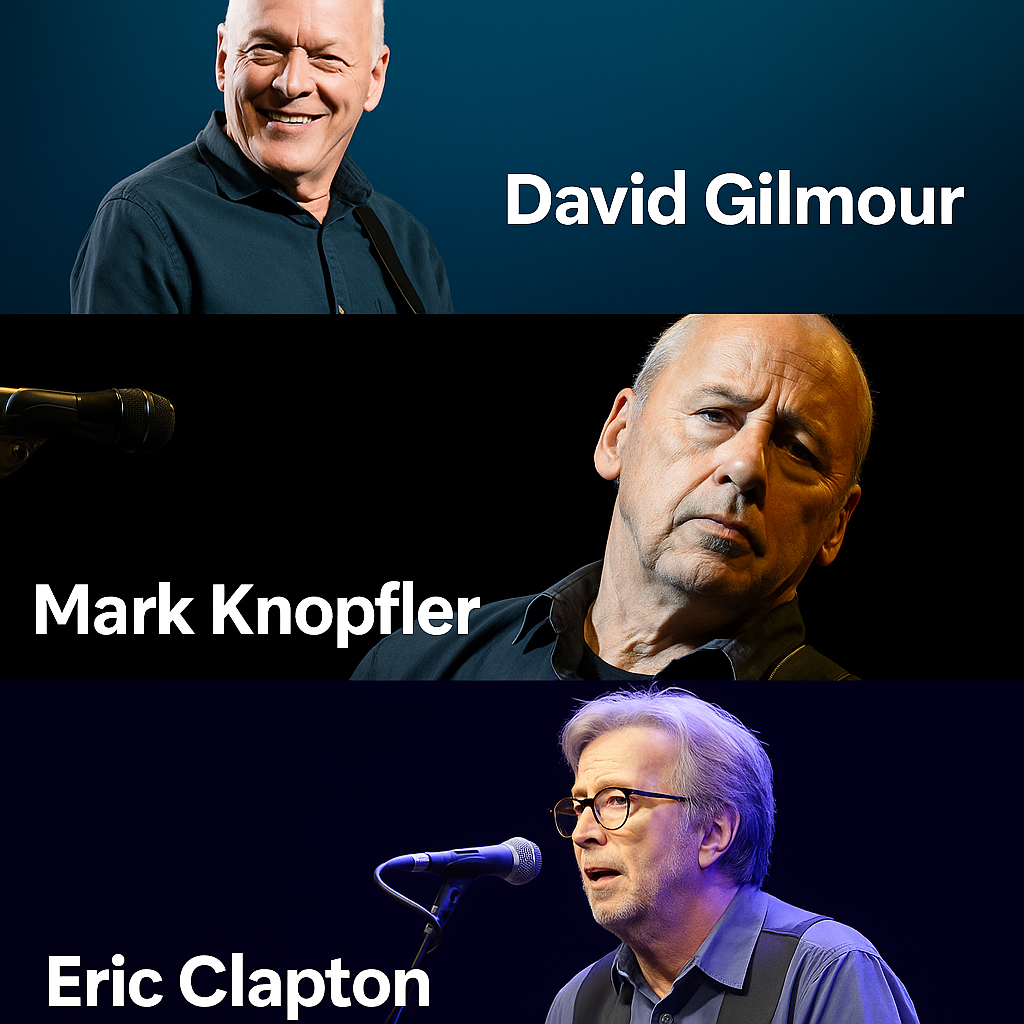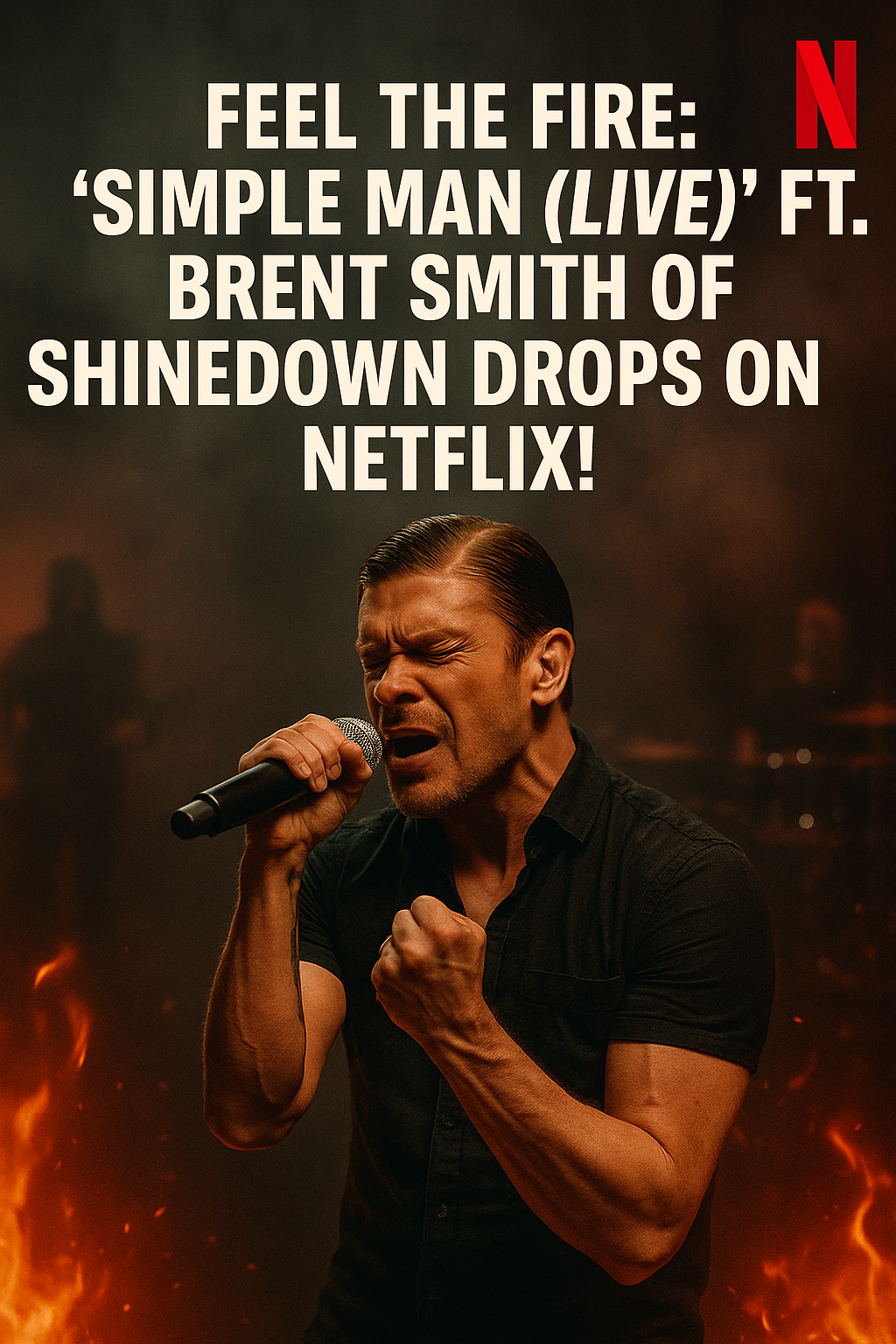Few instruments evoke emotion like the guitar, and even fewer guitarists have wielded it with the depth and nuance of David Gilmour, Mark Knopfler, and Eric Clapton. These three icons, though rooted in different traditions and techniques, share a singular gift: translating feeling into melody. In a world of shredders and showmen, they chose to speak to the heart.
David Gilmour is a guitarist who doesn’t just play notes — he sculpts them out of silence. As the soul behind Pink Floyd’s most ethereal work, Gilmour transformed the electric guitar into an emotional compass. His solos don’t just accompany lyrics; they complete the story. Songs like “Shine On You Crazy Diamond” and “Comfortably Numb” are masterclasses in how to say more with less.
What sets Gilmour apart is his tone — rich, expressive, and soaked in feeling. His use of delay and reverb isn’t for show but to build vast, otherworldly landscapes. He doesn’t rush; he lets each note breathe, speak, and linger. His guitar isn’t merely an instrument but a narrator of internal journeys, often saying what words cannot.
Mark Knopfler, by contrast, is the quiet storyteller. With Dire Straits, he pioneered a fingerstyle technique that feels conversational, almost intimate. His tone is dry and clean, letting the texture of each plucked note shine through. Knopfler’s guitar doesn’t demand attention — it earns it with quiet authority.
Knopfler’s gift lies in subtlety. In tracks like “Sultans of Swing” and “Brothers in Arms,” he weaves intricate melodies that feel like pages from a novel. His phrasing is conversational, filled with pauses and shifts in tone, mirroring the rhythm of human speech. Where others blaze through scales, Knopfler meanders through moods.
There’s a timelessness to Knopfler’s playing. He draws heavily from folk, blues, and country traditions, yet bends them into something uniquely his own. Like a seasoned novelist, he knows when to pull back and when to twist the narrative. Each note feels like a choice, each solo a scene in a larger story.
Then comes Eric Clapton — the Blues Messiah. Emerging from the British blues boom, Clapton brought a raw, gospel-like intensity to guitar playing. He’s the bridge between Robert Johnson’s haunted delta and the electric revolution of the ’60s and ’70s. With Clapton, the blues weren’t just revived — they were reborn.
Clapton’s solos are sermons. In songs like “Layla,” “Tears in Heaven,” and “Bell Bottom Blues,” his guitar cries with spiritual urgency. He doesn’t just channel the blues — he preaches them. His phrasing is steeped in tradition but driven by personal grief, joy, and redemption. Clapton’s guitar becomes an extension of his soul.
His influence is massive, but it’s the emotional clarity of his playing that resonates. He never overplays, always staying true to the core feeling of a song. Whether it’s a weeping Stratocaster or the gentle strum of an acoustic, Clapton finds the pulse of the blues and follows it with reverence.
Together, Gilmour, Knopfler, and Clapton form a holy trinity of soul-driven guitarists. They may differ in style — one celestial, one earthy, one confessional — but their impact is unified. Each man plays with a voice unmistakably his own, rooted in emotion, guided by experience, and polished by decades of evolution.
In an era increasingly enamored with speed and spectacle, these three remind us of the guitar’s original magic: its ability to express the inexpressible. They don’t play for applause — they play to connect, to reveal, to heal. Their music lingers not just in our ears but in our lives.
Ultimately, Gilmour, Knopfler, and Clapton don’t just play the guitar. They speak through it — in whispers, sighs, and hallelujahs. And through their strings, we hear ourselves.



